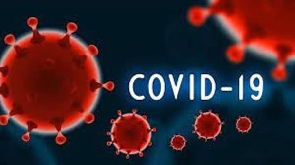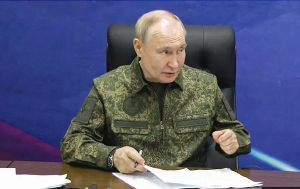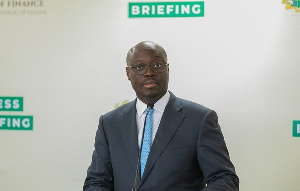The Eastern Region's mass COVID-19 vaccination is progressing smoothly, despite low participation due to the belief that the ease of mandated face mask wearing and other restrictions meant the coronavirus is eradicated.
Several Asesewa and Somanya inhabitants tend to believe that the ease of wearing mandated face masks in public areas and other limitations mean that the deadly virus, which has claimed hundreds of lives and infected thousands since its outbreak in Ghana, has been eradicated.
This was discovered following a combined five-day field visit of the United Nations Children's Fund (UNICEF) monitoring team and officials of the Ghana Health Service in some centers.
Despite the low turnout, officials from the UNICEF, a global humanitarian relief organization, praised health professionals in the region and across the country for their commitment to achieving high immunisation coverage.
Mr. Emmanuel Gbemu, Upper Manya Krobo District Health Administrative Manager, said that the Directorate had made many efforts and liaised with the District Assembly, religious leaders, schools, and opinion leaders to promote the vaccine drive.
For example, he noted that available statistics for the ongoing campaign in the Upper Manya Krobo District as of the conclusion of day one of the exercise indicated that just 194 persons out of a target population of 747 were vaccinated.
Master Emmanuel Agbezuke, a student of Asesewa Senior High School who had received the vaccine, urged his colleagues to follow suit.
"I believe that encouraging my colleagues to take the vaccine is the surest way to stay safe in the school, as well as focus on my academic activities," he said.
Mrs. Irina Ofei, Yilo Krobo Municipal Health Director, also advised individuals to cooperate with the Ghana Health Service by embracing the vaccination, which she described as both safe and effective against the virus.
On March 27, 2022, President Nana Addo Dankwa Akufo-Addo stated in a nationwide address that the use of facemasks was no longer mandatory effective March 28 of this year.
"All in-person activities, such as those that take place in churches, mosques, conferences, workshops, private parties and events, cinemas, and theaters, may resume at full capacity, as long as the audience and or participants are fully vaccinated," he said.
The declaration came after the government recorded a small number of active cases at the time. However, this led some people to believe that the infection had been eradicated.
Several people used such remarks as an excuse not to engage in the nationwide immunisation programme during the visit of UNICEF and Ghana Health Service personnel.
The Ghana Health Service is spearheading the fifth national COVID-19 immunisation campaign, which is funded by the German government through UNICEF.
The campaign began on December 14th and is set to end on December 18th, 2022.
All Ghanaians over the age of 15, including pregnant women and nursing mothers, are targeted for vaccination.
This aims to provide Ghanaians with additional protection against COVID-19 in the run-up to the Christmas season, which is often marked by large social gatherings and widespread movements of people.
As part of demand generation activities to increase vaccine uptake in the Upper Manya Krobo and Yilo Krobo Municipalities of the Eastern Region, the UNICEF team visited mosques, banks, shops, and hard-to-reach areas, including the Boti community, to provide support to vaccinators to boost the number of unvaccinated people in the areas.
Health News of Monday, 19 December 2022
Source: GNA













